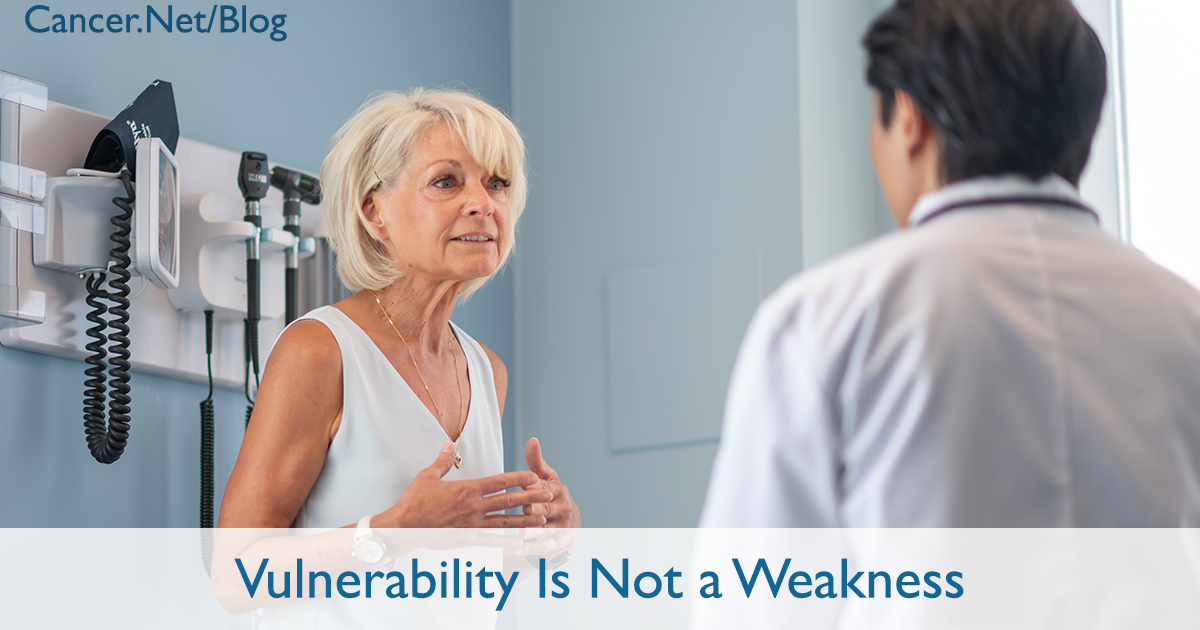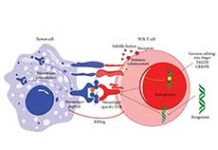
This post has been adapted from a post first published on ASCO Connection, May 21, 2020. ASCOConnection.org is the professional networking site for the American Society of Clinical Oncology (ASCO) and the companion website for ASCO’s official member magazine, ASCO Connection.
Mary Dominiecki, PhD, is the vice president of oncology at THE PLANNING SHOP. She is a lobular breast cancer survivor and patient advocate for the Lobular Breast Cancer Alliance and Komen Advocates in Science. You can follow her on Twitter.
Alexandra Kalmanofsky, MSW, is the senior director of Patient Research at THE PLANNING SHOP. She is a 3-time cancer survivor and has created a nonprofit group, Burning Survivors, to encourage cancer survivors and those who love them to push themselves physically while fundraising for those who can’t.
Through our professional and personal experiences, we know people with cancer are taught that the most important thing in their life is fighting cancer. People with cancer go through hours of doctor visits, sitting in waiting rooms, feeling alone and worried about the toll that treatment takes on our lives. We spend hours in infusion chairs, filling prescriptions, arguing with insurance companies, and coordinating tests and appointments. We experience inconveniences and side effects, and we may complain to a nurse, family member, or friend. But often, we do not bring these complaints to our oncologists, which could unknowingly put us in danger.
Why do people with cancer hold back from talking about side effects with our doctors? Often, the reason is fear. The cancer diagnosis itself can result in trauma, and we channel that traumatic fear into trusting one person: the oncologist. We are afraid that if we complain too much, we may be taken off the medication that is providing hope for a future. We worry about being labeled as “difficult” patients, thereby not getting the most effective treatment or compassionate care. We worry we may be perceived as having our priorities out of whack since we are taught that survival at (almost) all costs is the goal. We are taught that side effects and inconveniences are temporary necessary evils. Mostly, we are afraid to challenge our oncologist for fear they will abandon us in the time we need them most.
This is not to say people with cancer never report serious side effects to their health care team—of course we do. But do patients tell the oncologist how the treatment is really affecting them?
-
Do we say that we are so fatigued that we make excuses to not go out with friends?
-
Do we explain that we are so self-conscious that someone might notice that we have lost all our body hair and identify us as cancer patients that instead we choose to stay home?
-
Do we talk about how challenging the peripheral neuropathy is for our daily activities? Or how we are afraid to leave the house because of diarrhea?
-
Do we state that we live in fear that our nails are going to fall out, or that we worry that every ache and pain might mean the cancer is back?
-
Do we give voice to the thoughts and fears that keep us awake at night? Has the cancer returned? Has it progressed? Is it growing?
-
Do we share that while the decrease in time between appointments should be a sign of progress and distance from our original diagnosis, it actually induces even more anxiety that something may be missed, and we are terrified with every test and scan?
-
Do we go beyond our default answer to everyone, with a smile, that everything is “fine” or “I’m good”?
No. Not always.
People with cancer keep so much to themselves. Everything around us tells us we are in a battle that only the strong survive. Therefore, we are afraid to show any weakness. Everyone around us is trying to be helpful by telling us we are strong and that we are an inspiration. This is all well-meaning, but it contributes to people with cancer not feeling safe enough to be vulnerable and share what we are really going through.
What does this look like?
Alexandra’s story
I was 28 years old when I received my first cancer diagnosis, which was early-stage endometrial cancer. My oncologist wanted to use various hormonal treatments to save my uterus but advised me never to have children. I wanted a hysterectomy, but she advised me to keep my uterus intact, as I was a young woman and only had a 30% chance of advanced disease. Alone, afraid, and traumatized, I relented and agreed to many years of treatment that barely kept the cancer at bay. My fear for speaking up for myself further and for being heard haunts me to this day. It adds to the trauma of my life surviving cancer, not to mention the ongoing health care issues that followed. Mentally and emotionally, I was left on my own and the damage was significant. When I received my next 2 cancer diagnoses, I was old enough and wise enough to speak with oncologists who took my voice into account.
Mary’s story
Following my double mastectomy and breast reconstruction surgery to treat my breast cancer, I started to experience some pain in my pinkie and ring finger in my left hand. Then I noticed I also had some swelling in my left arm and wrist. But I didn’t call the oncologist right away. Several days went by before I connected the dots and realized that this was connected to my breast cancer surgery and I might be experiencing lymphedema. My mom was angry. Her first question was, “Didn’t they tell you what to look for?” I honestly couldn’t remember. I am sure they did. So much information is thrown at you in such a short period of time post-surgery when you are not in the right state of mind. There are so many things to worry about — wound healing, arm movement, drains, and more. Thankfully, with my work in oncology, lymphedema did finally occur to me, so I called my oncologist. Hopefully the time it took me to recognize the symptoms did not make my situation significantly worse, but I’ll never know. Lymphedema is now something I need to be concerned about forever.
As part of taking responsibility for our own care and being our own advocates, we need to establish trust and rapport with our health care team so we feel comfortable raising potential issues. If we do not feel comfortable with our care team, we may need to consider a change since it can adversely affect our care. We can certainly start those conversations by mentioning our concerns around changing treatments, our treatment goals, and our commitment to our treatment plan. It can also be helpful to engage advocacy organizations or support groups, which are great at reinforcing when patients need to reach out to their care team and not wait to see if things get better. Most importantly, feeling secure to discuss communication channels with your oncologist early on will pave the way for successful discussions throughout treatment and may enhance your health, both physically and emotionally.







